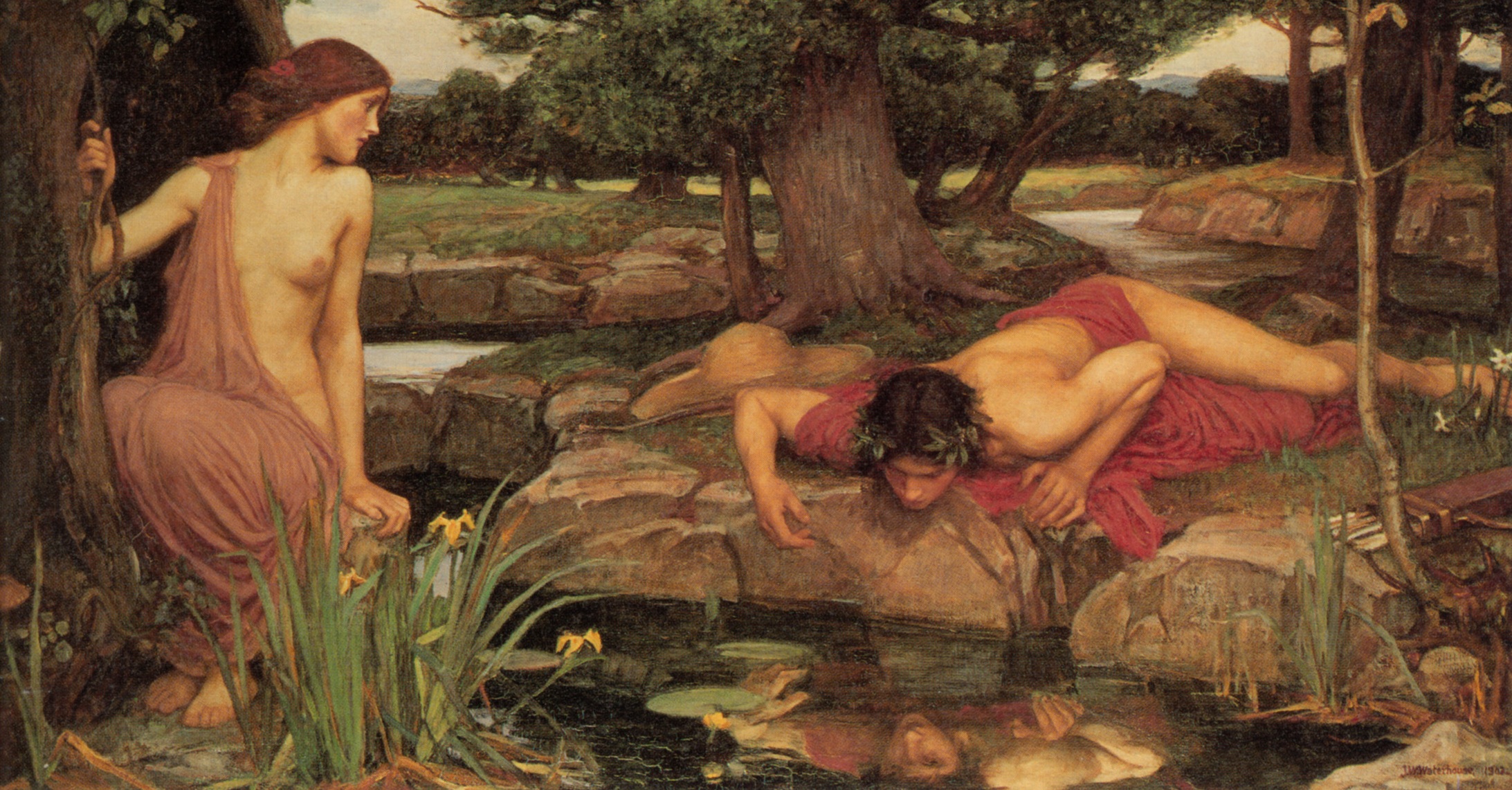
February 12, 2014, by Stephen Mumford
Apology for Narcissus
Valentine’s Day on February 14th is a supposed day of love. But then it’s not for all. Not everyone is in a relationship on that day, and not all of those in a relationship are truly in love. Nevertheless, we can make Valentine’s Day a day for everyone if we broaden it to include self-love and encourage this trait, which usually gets a bad press.
An accusation of being in love with oneself is always a slur. To be self-preoccupied, conceited, proud and vain are all portrayed as vices. Certainly they can be. Yet there is also truth in the old cliché that to love another you must first be able to love yourself.
Many times I have seen unhappy individuals having difficulties bonding with others and in allowing themselves the freedom to develop and flourish. I’ve thought the problem is that they just don’t love themselves enough. It’s much better for someone to think that they deserve some luxury, some leisure, to be heard, to be free, to be happy. People seem so much more pleasant when they are comfortable with themselves. The opposite – self-loathing – universally leads to problems.
So too among academics discussing their subjects. A self-lover tends to be the most generous with the ideas of others. Being self-reassured, they don’t need to do others down, make themselves look better or see debate as a competition. They validate themselves so don’t need it externally. And how much more pleasant company that makes a soul.
We benefit when we look to the wisdom of the ancients. Narcissus appears in Ovid’s Metamorphoses as handsome and proud. The problem is not in seeing the beauty in oneself. Narcissus fell in love with his own reflection where, unable to leave, he died. A trait that is a virtue can become a vice if taken to excess, as Aristotle teaches in the Nicomachean Ethics. Virtue is said to be a mean between two extremes. Self-love was not in itself the problem for Narcissus: it was that he took it to such a level that he could not function normally.
Start Valentine’s Day loving yourself. Thinking that you deserve to be loved is a condition of being lovable. Have the wisdom to judge how much self-love is healthy. Avoid falling into self-obsession and sometimes treat yourself to the mythologies of the classics.

loving it!
I can’t agree more !
I agree. I like the way you drew attention to the fact that in all things, moderation is key
[…] Subjects included History, Chemistry and Medieval studies. Professor Stephen Mumford over on the Arts Matters blog also reminded us of the importance of loving ourselves as well as […]
I think this is great, especially the thoughts on the way academics sometimes conduct themselves in discussion. There is one complication I would add: that the bad behaviour that you mention does in turn make it difficult for other people to conduct themselves with confidence in those arenas. In some contexts, some people’s lack of genuine self-assurance undermines other people’s self-assurance. Misery loves company. That, it seems to me, makes such behaviour particularly pernicious.